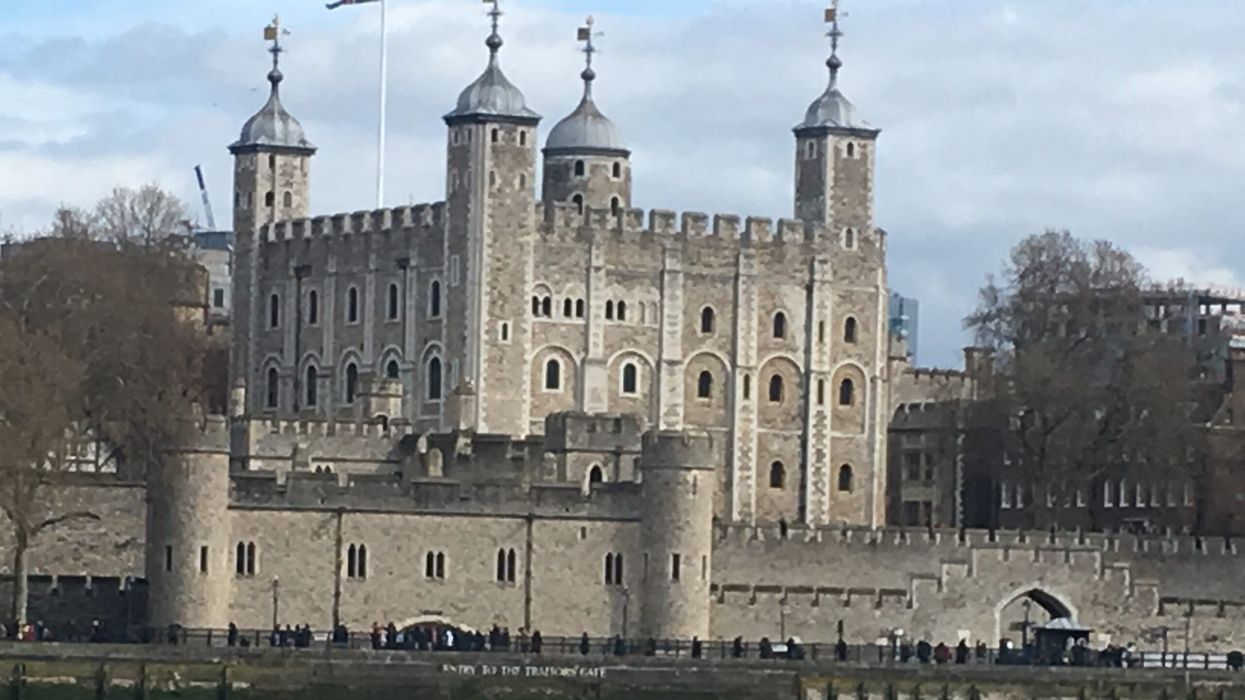UNESCO has confirmed it is seeking more information over concerns about the impacts of high-rise buildings on the Tower of London, sparking fears the iconic attraction could lose its world heritage status.
The international body clarified to the Local Democracy Reporting Service (LDRS) that it expects a State of Conservation Report to be submitted by December 1, for ‘possible examination’ at its committee in 2025.
The last time the site was reviewed was in 2014. UNESCO’s request, dated April 2, was first referenced in Historic England’s submission to the City of London Corporation’s draft local plan during consultation earlier this year.
Entitled the City Plan 2040, it will act as the Corporation’s guiding document when it comes to developing the Square Mile, with its adoption expected in 2025.
In its submission, which was not made public, Historic England warned of ‘a very serious inherent conflict and incompatibility between the draft Plan’s general, high level aspirations for the historic environment’ and its target of adding 1.2 million square metres of office floorspace, to be delivered via tall buildings in the City Cluster and Fleet Valley zones.
The public body also drew attention to concerns relating to specific heritage assets, including the Tower of London. It said the City’s draft tall building policies represent a ‘real threat to the World Heritage Site status of the Tower of London’, and that UNESCO had requested a State of Conservation Report into the site.
This has now been confirmed by UNESCO, with a spokesperson telling the LDRS, “This request arose from the Centre’s view that the World Heritage property may face cumulative impacts, including from the rapid development of new high-rise buildings in the immediate vicinity of the property, and the lack of protection of the property and its Outstanding Universal Value – the reason why it was inscribed – through an adequate buffer zone and a thorough visual impact study.”
They added the ‘State Party’, the UK government, has confirmed a report will be submitted by December 1, ‘for possible examination by the World Heritage Committee at its 47th session in 2025’. State of Conservation Reports are not uncommon. According to UNESCO’s website, two have been submitted in the last decade on the Tower of London by the Government, one of which also included information on Westminster Palace and Westminster Abbey.
Historic England will be among the partners assisting the Government on the report. A spokesperson said: “Historic England and the International Council on Monuments and Sites (ICOMOS) have over the past few years raised serious concerns about a number of proposals for tall buildings that would affect the Tower of London.
“Many of these proposals are included in the latest draft of the City of London’s Local Plan, to which Historic England has objected. The UK State Party has shared the draft Local Plan with UNESCO for comments from their Advisory Body, ICOMOS.
“At this stage UNESCO is looking to understand the level of threat that these developments could together cause to the Outstanding Universal Value of the Tower of London, before they consider whether further action is necessary.”
The Tower of London is on the eastern edge of the Square Mile, bordering the borough of Tower Hamlets. To its south, across the River Thames, is Southwark. Asked about UNESCO’s request, the City directed the LDRS to a comment previously made by deputy Shravan Joshi, chair of the Planning and Transportation Committee.
He said: “The Square Mile is both the historic heart of the capital and a world-leading business district. The City Plan 2040 is underpinned by a robust evidence base that shows how demand for quality office space in the Square Mile is expected to rise, with City workers and businesses being enticed back to the City and the vibrant and dynamic working environment the Square Mile provides.
“The City Plan sets out how we will deliver additional office floorspace up to 2040 at the same time as celebrating the City’s heritage. Recognising the exceptional significance of the World Heritage Site and the Cathedral, the Plan takes a bespoke and exhaustive approach to tall buildings and heritage. The policies in the Plan will ensure development protects and celebrates all our heritage assets while continuing to support the economic growth of the capital. In the City, growth and conservation combine to define what is unique about the Square Mile, and this is ultimately at the heart of the Plan.”
A spokesperson for Historic Royal Palaces, which manages the Tower of London, confirmed it will also be contributing to the report. The spokesperson said: “As guardians of the Tower, we have significant concerns in respect of the current draft City Plan 2040 and consider the current approach and policies of the plan in respect of tall buildings and impact on the Tower of London to be unsound, due to the impact of them on the Tower of London World Heritage Site.”
The Corporation’s draft City Plan 2040 is expected to be submitted to the Secretary of State this autumn, before being examined by the Planning Inspector. Adoption is then anticipated in the new year.
(Local Democracy Reporting Service)




